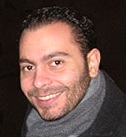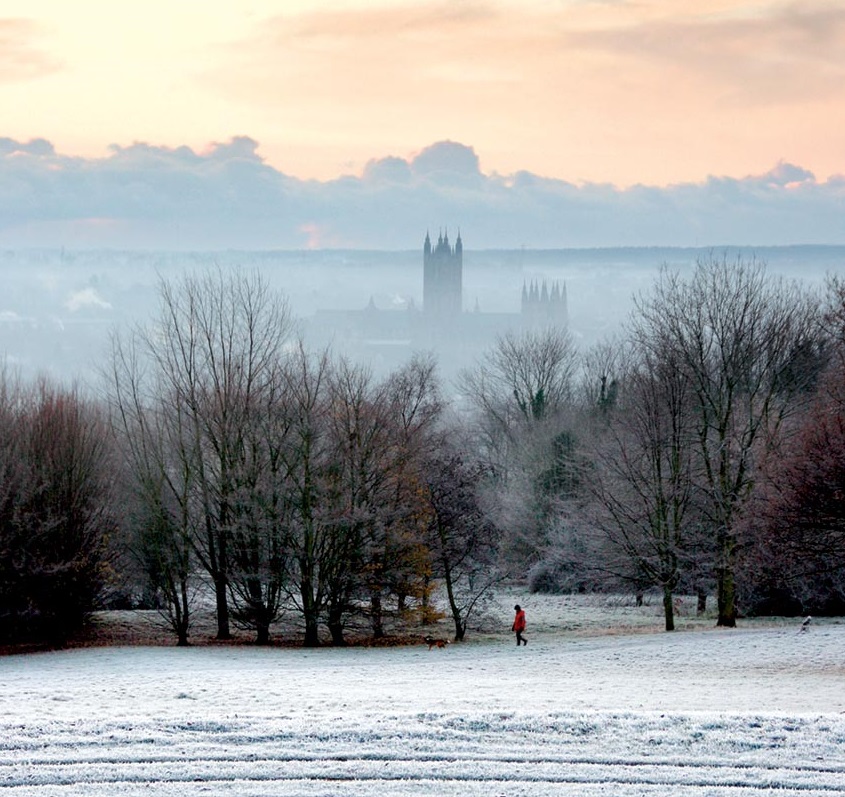We asked our lecturers what they would recommend for students of Comparative Literature to get stuck into over Christmas, and here’s what they came up with:
 Paul March-Russell, Lecturer in Comparative Literature says:
Paul March-Russell, Lecturer in Comparative Literature says:
Tade Thompson’s Rosewater is a sensation. BSFA Best Novel in 2018 and winner of the 2019 Clarke Award, it describes a mysterious alien dome that has transformed Nigeria, and the human city – Rosewater – which has grown up on its perimeter. What the aliens want with us, and what we want from the aliens, forms the heart of the mystery. Tarkovsky’s Stalker bred with postcolonial desire – read it now!
 Anna Katharina Schaffner, Reader in Comparative Literature says:
Anna Katharina Schaffner, Reader in Comparative Literature says:
This year, I really enjoyed reading Sally Rooney’s brilliant, perceptive and productively disturbing coming of age tale Normal People (Faber, 2018), as well as Deborah Levy’s quirky and beautifully surreal Hot Milk (Penguin, 2016). I also loved Lauren Groff’s magnificent new short story collection Florida (Heinemann, 2018) – evocative and often eerie, it is teeming with insight and compelling lyricisms.
 Patricia Novillo-Corvalán, Senior Lecturer in Comparative Literature, goes back to an old favourite:
Patricia Novillo-Corvalán, Senior Lecturer in Comparative Literature, goes back to an old favourite:
I’m planning to reread Gabriel García Márquez’s epic novel One Hundred Years of Solitude (1967) this Christmas. I loved this novel when I first read it at the age of 18 and I now feel that I’m ready to read it again! I look forward to immersing myself in its 100 years of magic and despair, joy and solitude, truth and superstition.
 Angelos Evangelou, Lecturer in Comparative Literature, also suggests a trip into magical realism:
Angelos Evangelou, Lecturer in Comparative Literature, also suggests a trip into magical realism:
I would like to recommend an incredible text by the Iranian author Shahrnush Parsipur. The title of the novella is Women Without Men (1989) and it consists of autonomous yet interlinked stories of women on their way to physical, intellectual and emotional emancipation. The narrative is set in a heavily repressive society in Iran in the 1950s. The beauty of the text lies in the way the author marries the supernatural – which allows women to turn into trees – and the very real.
 Jo Pettitt, Lecturer in Comparative Literature, takes a trip into childhood with her recommendation:
Jo Pettitt, Lecturer in Comparative Literature, takes a trip into childhood with her recommendation:
At Christmas, I love to go back to my childhood favourites! This year, I plan on journeying back to Fantasia with the young Bastian Bux in Michael Ende’s The Neverending Story. I hope you all love it as much as I do!
 Katja Haustein, Lecturer in Comparative Literature, takes a trip even further back:
Katja Haustein, Lecturer in Comparative Literature, takes a trip even further back:
One of the texts I rediscovered this term is a novella by the Romantic writer Heinrich von Kleist: The Marquise von O… The story opens with a rather unusual advertisement in a local newspaper: A lady announces that she has become pregnant without her realising, and that the father to her unborn child should make himself known so that they could marry. It’s a weird story, very beautiful but also deeply disturbing and, although written more than 200 years ago, of an uncanny timeliness in the age of ‘#MeToo’.
 Peter Adkins, Lecturer in Comparative Literature says:
Peter Adkins, Lecturer in Comparative Literature says:
I always think Christmas is a great time to dive into a big novel that you wouldn’t usually have time to read and with George Eliot’s 200 birthday being recently celebrated, this year I am planning to re-read her masterpiece Middlemarch. It has everything you want from a Victorian novel: engaging characters, a plot full of twists and turns, a moving depiction of the huge changes that swept Europe in the nineteenth century, and an amazing female lead character! I would recommend it to anyone who likes story telling on an epic scale or is interested in the evolution of the novel.
 Axel Stähler, Professor of Comparative Literature, and Head of the Department, says:
Axel Stähler, Professor of Comparative Literature, and Head of the Department, says:
The festive season may bring to mind the Christmas story. Whether it be of religious significance to you or not, I suggest: read the Bible! It is, in the Western canon and beyond, a foundational text, which has had an immeasurable influence on literature and the arts in general – across the ages. It is also a good read: murder, gore, and love as well as the marvellous, a bit of history, and the apocalyptic – and, yes, some ethics and philosophy. Is it patriarchal, Judeocentric, Christocentric? So, read it critically, and with an open mind, but also enjoy its poetry…

